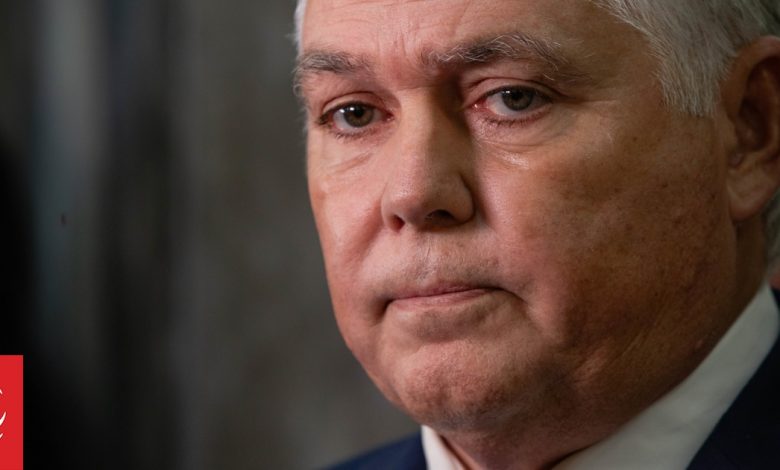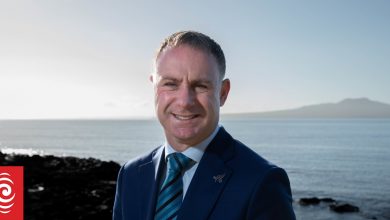Police Minister Mark Mitchell defends under-fire proto boot camp course

The police minister has defended the success of a programme for troubled youths, after documents revealed staff leading it were suffering severe mental distress and physical assaults.
The six-week Limited Service Volunteer course (LSV) run by the New Zealand Defence Force (NZDF) and Ministry of Social Development (MSD) has been held up by the coalition as the blueprint for its proposed boot camps.
But documents released to RNZ under the Official Information Act show “serious mental harm including several cases of suicidal ideation” among some of the military staff who run the programme.
The number of physical assaults on staff also increased, according to the briefing to ministers.
In 2022/23, as many as 60 percent of the intake were deemed to have complex needs.
https://www.rnz.co.nz/national/programmes/morningreport/audio/2018944893/lsv-course-military-staff-face-mental-distress-assaults
Police Minister Mark Mitchell says that does not mean the programme is not a success, and the NZDF staff are there by choice.
“The NZDF personnel, most of them on that course have volunteered,” he told Morning Report on Monday.
“They have the resilience, they have the leadership, and they know that if we don’t make an investment into these young people, they’re going to end up in the adult system, and huge admiration to them… It’s a difficult job, but they’re willing step up.”
Critics of the government’s boot camp programme say there is no evidence they work to reduce reoffending.
Mitchell brushed off suggestions the boot camps would be harder on NZDF personnel, considering the LSV course is taken by volunteers, but boot camp participants would be there by order of the court.
“Many of the young people on the LSV have been in trouble with the police. Some have even been in jail. The course is for 18- to 24-year-olds. I’m not saying it’s easy. It’s not easy. It’s very hard.
“I’ve been heavily involved in the programme. I’ve been a patron myself, and I’m a huge believer in it.
“But in my experience, NZDF don’t force anyone to go and participate and lead on the courses at all. Certainly when I was involved, the people that I spoke to and that I worked with, were volunteers that wanted to be there. “
Mitchell said many of those who complete the LSV course decide to join the NZDF, though many were not able to because of past convictions – which some of those in the NZDF would apparently like changed.
‘Punished one way or another’
A past patron of the LSV course said some trainees are very challenging. Ross Browne told Morning Report NZDF staff did their best to help trainees when he was there.
“They wouldn’t be there if they didn’t have a number of difficult circumstances, but what I saw is Defense Force staff and MSD digging in and doing their very best to help them.
“We asked Defence to do the hard stuff, you know, not the easy stuff. So it is going to be hard going with the trainees they were asked to help.”
He said MSD staff did the social and mental health work, while NZDF personnel concentrated on fitness and “life skills like how to give interviews, talking about nutrition, to manage mood and some of those issues”.
“Discipline is part of it. And, you know, these are 17- to 24-year-olds so they’re not kids. They’re all there by choice. A good deal of them respond very, very well to having that structured discipline way of doing things.
“You know, some of them are talking about it being the first time they were required to get out of bed, make the bed, get their clothes on and be organised for the day by a certain time.”
Asked whether young offenders would consider boot camp more of a punishment than rehabilitation, Browne said they had already offended “so they’ll be punished one way or another”.
“This gives them an opportunity to, rather than serve their time in another way, do it in this military context.”

The Children’s Commissioner and Human Rights Commission, among others, have raised concerns evidence showed boot camps did not work.
Prime Minister Christopher Luxon last week said he did not care what critics said “about whether it does or doesn’t work.”
“We can have that intellectual conversation all day long, but we are, damnit, going to try something different because we cannot carry on getting the results that we’ve been getting.”
Mitchell said the LSV course had about a 70 percent success rate in getting young people into training or employment.
“It is a hard, challenging, tough environment, and I have no doubt at all that it suits some people and it doesn’t suit others and the ones that it doesn’t suit they should seek to put their hand up quickly, and if they need any support, they get it.
“But as a country, we can’t give up on these young people. We have to keep looking for ways to be able to invest in them and get them making good decisions in their lives. Otherwise, they’re on a fast-track into our adult system, and it’s much harder to rehabilitate them.”
Defence Minister Judith Collins told RNZ she had been advised that work was continuing and she was not worried about the state of the LSV programme.
Minister for Children, Karen Chhour – the minister responsible for the LSV scheme – was overseas and unavailable for an interview.
According to the news on Radio New Zealand




